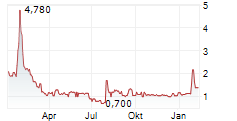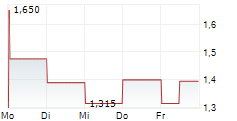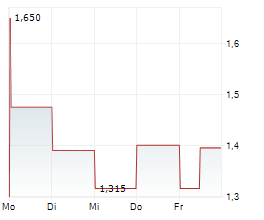
- The CB1-SSi AEF0217 successfully met the safety (primary), pharmacokinetic (secondary) and efficacy (secondary and exploratory) objectives of this phase 1/2 performed in young adults with Down syndrome (Trisomy 21) for whom cognitive disorders are a major unmet medical need.
- AEF0217 was well tolerated, and no safety concerns were identified, confirming that the drug could be safely used even in the more fragile population of young adults with Down syndrome.
- After four weeks of treatment, AEF0217 significantly improved important behavioral abilities in the communication, daily living skills and social interactions domains, as measured by the reference Vineland Adaptative Behavior Scale (VABS).
- These improvements were associated with a consistent trend to increase in cognitive flexibility which was measured using the NIH-Toolbox Cognitive Battery. Statistically significant changes in EEG parameters indicating a decrease in the strain to perform a working memory task and of target engagement were also observed.
- On the basis of these results, Aelis Farma plans to initiate around mid-2025 an international multicenter Phase 2 dose finding study in participants with Down syndrome.
Regulatory News:
Two videoconferences will be held tomorrow, on Tuesday November 19, 2024, the first in French at 10:00 am CET and the second in English at 4:00 pm CET 10:00 am ET.
To participate, please register here:
Videoconference in French
Videoconference in English
Aelis Farma (ISIN: FR0014007ZB4 Ticker: AELIS), a clinical-stage biopharmaceutical company specializing in the development of treatments for brain and peripheral diseases involving the CB1 receptor, today announces the positive results of a Phase 1/2 clinical study with AEF02171 in young adults with Down syndrome.
This Phase 1/2 clinical trial with AEF0217 was a randomized, double-blind, parallel study comparing one dose of AEF0217 (0.2mg oral dose) to placebo after 28 days of treatment once a day in young adults (between 18 and 35 years old) with Down syndrome. The primary objective of the trial was to assess the safety and tolerability of AEF0217, which is particularly relevant in the fragile population with Down syndrome. The secondary and exploratory objectives investigated the pharmacokinetic and the efficacy of AEF0217 on the behavioral impairments of young adults with Down syndrome. 29 young adults with Down syndrome with mild to moderate intellectual disability were included in the study by the teams of Prof. de la Torre Fornell at the Hospital del Mar Medical Research Institute (HMRIB) in Barcelona (Spain), the principal investigator, and Dr Real de Asua at the Hospital de la Princesa in Madrid (Spain). The effects of a treatment with AEF0217 were also studied as a function of the APOE4 genotype (APOE4-positive versus APOE4-negative). This genetic marker has been shown to be related to endocannabinoid physiology and to the susceptibility to develop Alzheimer disease.
The study successfully met its safety (primary), pharmacokinetics (secondary) and efficacy (secondary and exploratory) objectives. AEF0217 was well tolerated, and no safety concerns were observed. The adverse events were similar in the placebo and AEF0217 groups. Most of the adverse events observed were of mild severity and considered unrelated to treatment. No serious or severe adverse events were observed nor was there any discontinuations of the treatment due to adverse events. AEF0217 also showed a favorable pharmacokinetic profile with plasma exposure on average slightly higher in young adult with down syndrome than in healthy volunteers. These results are consistent with previous Phase 1 clinical studies conducted in healthy volunteers, in which AEF0217 also demonstrated a very favorable safety and pharmacokinetic profile.
The effects of AEF0217 on the behavioral impairments of young adults with Down syndrome were studied using two assessment tools. The Vineland Adaptive Behavior Scale (VABS), which directly measures the potential improvements in everyday life functioning of people with Down syndrome and the NIH-Toolbox Cognitive Battery for intellectual disabilities which directly measures different cognitive functions. Of the nine behavioral skills investigated by the VABS, AEF0217 improved five: (i) expression abilities (P<0.002); daily living skills: (ii) of the personal sphere (P<0.003), and (iii) in the community (P<0.03, in APOE4-negative participants); (iv) interpersonal relationships skills (P<0.01), and (v) a strong trend to an improvement in writing abilities in APOE4-negative participants. It is noteworthy that AEF0217 seemed to induce larger improvements in participants with the greater impairments before starting the treatment (P< between 0.04 and 0.003).
Of the five different cognitive functions investigated by the NIH-Toolbox Cognitive Battery for intellectual disability, AEF0217 induced a clear trend to increase cognitive flexibility, an effect close to statistical significance (P<0.09) in APOE4-negative people with Down syndrome. Cognitive flexibility is a very important cognitive function, impaired in Down syndrome. This cognitive function is also improved by AEF0217 in genetic animal models of down syndrome, confirming the translation of AEF0217 effects across species. AEF0217 also significantly (P<0.012) decreased the Electro Encephalographic (EEG) activity associated with a working memory task that is higher in young adults with Down syndrome indicating a higher strain in performing this task compared with neurotypical controls.
Finally, AEF0217 also showed clear indications of target engagement, significantly modifying (P<0.05) a CB1 dependent EEG parameter: the Gamma Intertrial Coherence (ITC) during Auditory Steady State Response (ASSR) at 40 Hz (ITC-ASSR-40 HZ).
It is noteworthy that the results on adaptative behavior and cognition were observed after only four weeks of treatment, whereas it is generally believed by experts in the field that at least several months of treatment are needed before a pharmacological intervention is able to modify adaptative behavior and cognitive performances in neurodevelopmental disabilities.
Prof. Rafael de la Torre Fornell, the trial's principal investigator, explains: "The promising and impressive results of this study generate a real hope to develop an efficacious and safe treatment for the cognitive disabilities of people with Down syndrome. Particularly striking are the efficacy data, which addresses crucial domains of adaptation, such as expression and writing abilities as well as certain daily living skills and societal interactions. These types of effects, especially because obtained after only four weeks of treatment, are certainly a first in the field of Down syndrome and represent a major step towards the development of a treatment that could significantly improve the autonomy and adaptation of people with Down syndrome. I would like to take this occasion to also send my warmest thanks to the participants, their families and family associations who supported this innovative project and helped us to complete this pioneering clinical trial."
Pier Vincenzo Piazza, CEO of Aelis Farma, concludes: "I would like to congratulate the teams of Prof. Rafael de la Torre Fornell and Dr Diego Real de Asua, as well as the Aelis Farma team for this major achievement in the development of AEF0217. I would also like to extend my warmest thanks to all the participants, their families and family associations, who have made this study possible.
We see this accomplishment as a milestone in the development of a promising therapy that could significantly improve the autonomy and quality of life of people with Down syndrome. It is also, more generally, the first evidence of the positive impact of AEF0217 on cognition, which could pave the way for the treatment of other cognitive disorders. These results also provide a supplementary validation of the safety and activity of the new pharmacological class developed by Aelis Farma, the "Signaling Specific inhibitors of the CB1 receptor (CB1-SSi)". We believe that the CB1-SSi represent a major innovation in pharmacology that will allow to generate inhibitors not only efficacious but also safe and well tolerated, opening the way to new treatments of conditions without treatment today."
About AEF0217 and the Clinical Phase 1/2 Study
AEF0217 is Aelis Farma's second drug candidate at the clinical stage. It belongs to a new class of drugs discovered by the company, the Signaling Specific inhibitors of the CB1 receptor of the endocannabinoid system (CB1-SSi). A hyperactivity of the CB1 is involved in many brain and peripheral disorders. AEF0217, like the other CB1-SSi, is able to inhibit only certain components of CB1's activity. This molecular selectivity generates the first CB1 inhibitors that show beneficial pharmacodynamic effects but lack the side effects characterizing the drugs of the previous generation, the CB1 antagonists.
AEF0217 is developed as a new approach for the treatment of cognitive impairments, a series of brain disorders which seems to involve the CB1 receptor. The first indication targeted by AEF0217 is the behavioral impairment associated with Down syndrome.
The Phase 1/2 study in young adults with Down syndrome (NCT05748405) is part of Aelis Farma clinical development program of AEF0217. This was a randomized, double-blind, placebo-controlled study ("Effect of AEF0217 in Young Adult Participants With Down Syndrome (DS)")1. Twenty-nine young adults (between 18 and 35 years old) with Down syndrome (trisomy 21) were randomized across two clinical centres in Spain (Barcelona and Madrid). Participants were treated once a day for 4 weeks, with either an oral dose of AEF0217 (0.2mg) or placebo, followed by a four-week follow up period.
The primary objective was to assess the safety and tolerability of AEF0217.
Secondary and exploratory endpoints measured pharmacokinetic and pharmacodynamic parameters. Potential therapeutic effects of AEF0217 were measured by two assessment tools.
The first tool was the Vineland Adaptive Behaviour Scale (VABS) scale, which directly measures the potential improvements in everyday life functioning of persons with Down syndrome by analysing specific skills within three major domains of abilities: (i) Communication: expressive, receptive and writing skills; (ii) Daily living skills of the personal, domestic and community spheres and (iii) Socialization: interpersonal relationships, play and leisure time and coping skills.
The second tool was the NIH-Toolbox Cognitive Battery for intellectual disabilities which measures five different cognitive functions: Attention; Episodic Memory; Working Memory; Cognitive flexibility and Processing speed. In particular, working memory and cognitive flexibility are important functions impaired in Down syndrome and in genetic animal models of this condition.
About the AEF0217 clinical program for the treatment of cognitive disorders in Down syndrome: the European ICOD project
The clinical development of AEF0217, the phase 1 program in healthy volunteers, the phase 1/2 just completed and the next phase 2 in people with Down syndrome are part of the European H2020 ICOD project (Improving COgnition in Down syndrome, Grant Agreement ID 899986). The ICOD project received €6 million of fundings from the European Commission and involves partners in Spain, France and Italy.
Based on the results of the Phase 1/2, Aelis Farma expects to start an international multicenter Phase 2 dose finding study with AEF0217, for the treatment of the behavioral impairments associated with Down syndrome. This Phase 2 is planned to start around mid-2025. As discussed with the European Medicines Agency (EMA), and taking advantage of the knowledges generated by the Phase 1/2, the Phase 2 study will focus on the improvement of the adaptative behaviors measured by the VABS and on specific cognitive functions measured by the NIH-Toolbox Cognitive Battery for intellectual disabilities. It is noteworthy that an improvement in adaptative behaviors as measured by the VABS is considered by regulatory authorities as an endpoint that can be used to obtain approval.
Aelis Farma is also conducting additional preclinical studies to better determine the range of potential indications of AEF0217 in the broad field of cognitive deficits.
About AELIS FARMA
Founded in Bordeaux in 2013, Aelis Farma is a biopharmaceutical company that is developing a new class of drugs, the Signaling Specific inhibitors of the CB1 receptor of the endocannabinoid system (CB1-SSi). CB1-SSi have been developed by Aelis Farma based on the discovery of a natural regulatory mechanism2 of CB1 hyperactivity made by the team led by Dr Pier Vincenzo Piazza, the Company's CEO, when he was the director of the Neurocentre Magendie of INSERM in Bordeaux. By mimicking this natural mechanism, CB1-SSi appear to selectively inhibit the disease-related activity of the CB1 receptor without disrupting its normal physiological activity. CB1-SSi have consequently the potential to provide new safe treatments for several brain and peripheral organ diseases.
Aelis Farma currently has two first-in-class clinical-stage drug candidates. AEF01173 for the treatment of cannabis use disorders (CUD), that has just completed a Phase 2B study in the United States in CUD. AEF0217 for cognitive disorders, which has completed a Phase 1/2 study in Spain in young adults with Down syndrome (Trisomy 21). The Company also has a portfolio of new innovative CB1-SSi for the treatment of other disorders associated with a dysregulation of the activity of the CB1 receptor, including diseases involving peripheral organs, such as obesity and related metabolic conditions as well as fibrosis. The different drugs developed by the company belong to the same general pharmacological class, the CB1-SSi, but have distinct functional effects allowing to target different types of dysregulations of the CB1 receptor and guaranteeing that the different compounds are not substitutable one with the others.
Aelis Farma draws on the talents of more than 30 highly qualified employees.
For more information, visit www.aelisfarma.com and follow us on LinkedIn and Twitter.
References:
- Identifier: NCT05748405 https://clinicaltrials.gov/study/NCT05748405?intr=aef0217&rank=1
- Vallée M, Vitiello S, Bellocchio L, et al. Pregnenolone Can Protect the Brain from Cannabis Intoxication. Science 2014;343(6166):94-98. DOI: doi:10.1126/science.1243985.
- Haney M, Vallée M, Fabre S, Collins Reed S, Zanese M, Campistron G, Arout CA, Foltin RW, Cooper ZD, Kearney-Ramos T, Metna M, Justinova Z, Schindler C, Hebert-Chatelain E, Bellocchio L, Cathala A, Bari A, Serrat R, Finlay DB, Caraci F, Redon B, Martín-García E, Busquets-Garcia A, Matias I, Levin FR, Felpin FX, Simon N, Cota D, Spampinato U, Maldonado R, Shaham Y, Glass M, Thomsen LL, Mengel H, Marsicano G, Monlezun S, Revest JM, Piazza PV. Signaling-specific inhibition of the CB1 receptor for cannabis use disorder: phase 1 and phase 2a randomized trials. Nat Med. 2023 Jun;29(6):1487-1499. https://doi.org/10.1038/s41591-023-02381-w
ISIN: FR0014007ZB4
Ticker: AELIS
B Compartment of Euronext Paris
Disclaimer
Forward-looking statements
Some information contained in this press release are forward-looking statements, not historical data. These forward-looking statements are based on current beliefs, expectations, and assumptions, including, but not limited to, assumptions about Aelis Farma's current and future strategy and the environment in which Aelis Farma operates. They involve known and unknown risks, uncertainties, and other factors, which may cause actual results, performance, or achievements, or industry results or other events, to differ materially from those described or implied by such forward-looking statements. These risks and uncertainties include those set out and described in detail in Chapter 3 "Risk Factors" of Aelis Farma's Universal Registration Document approved by the Autorité des Marchés Financiers on April 24, 2024, under number R.24-004.
These forward-looking statements are made only as of the date of this press release and Aelis Farma expressly disclaims any obligation or undertaking to release any updates or corrections to the forward-looking statements included in this press release to reflect any change in expectations or events, conditions, or circumstances on which any such forward-looking statement is based. Forward-looking information and statements are not guarantees of future performance and are subject to various risks and uncertainties, many of which are difficult to predict and generally beyond Aelis Farma's control. Actual results could differ materially from those described in, or implied or projected by, forward-looking information and statements.
View source version on businesswire.com: https://www.businesswire.com/news/home/20241118198128/en/
Contacts:
AELIS FARMA
Arsène Guekam
Chief Corporate Development Officer
contact@aelisfarma.com
NewCap
Dusan Oresansky Aurélie Manavarere
Investor Relations
aelis@newcap.eu
+33 1 44 71 94 92
NewCap
Arthur Rouillé
Media Relations
aelis@newcap.eu
+33 1 44 71 00 15



